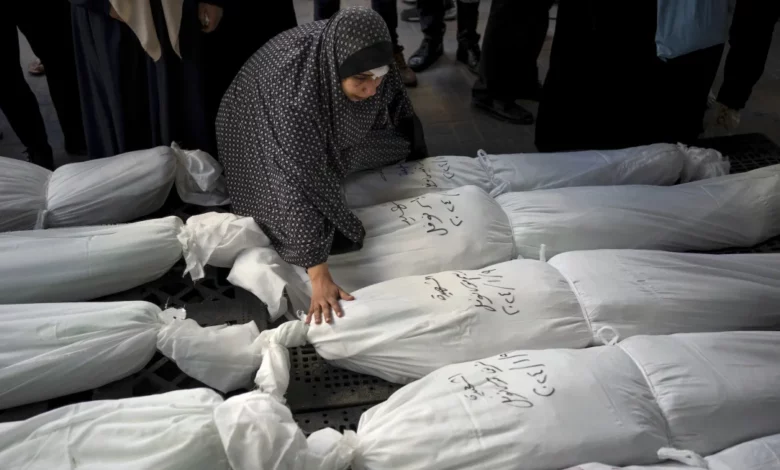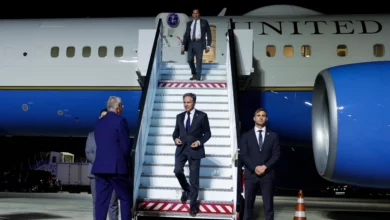
“If the genocide in Gaza stops, then it will lead to the end of other crises and attacks in the region,” Iranian Foreign Minister Hossein Amir-Abdollahian told CNN’s Fareed Zakaria in an interview at the World Economic Forum in Davos on Wednesday.
Abdollahian’s comments echo the stated objectives of individual armed groups in Iran’s network of influence.
Since Hamas’ October 7 attacks on Israel and the Israeli offensive in Gaza that followed, the militant group Hezbollah has engaged in daily confrontations with Israeli forces on the Lebanon-Israel border.
Houthi rebels have launched a series of attacks on commercial ships and Western military vessels in the Red Sea, a major artery for international trade. And Iranian-backed forces in Iraq and Syria have launched dozens of attacks aimed at US military positions in those countries, leading to a number of close calls.
On Sunday, Hezbollah chief Hassan Nasrallah said for the first time that confrontations at the Lebanon-Israel border, which have intensified in recent weeks, “would not end” before a ceasefire in Gaza.
Iran entered the fray more directly earlier this week when it fired ballistic missiles at what it claimed was a spy base for Israel’s intelligence agency Mossad in Erbil, northern Iraq, in response to what it said were Israeli attacks that killed Iranian Revolutionary Guard commanders and members of the Iranian resistance front. Iraq denied there were any Mossad bases in Erbil; Israel has not commented on the strikes.
Iran also launched missile strikes in Syria and Pakistan against what it described as terrorist groups who it blamed for deadly attacks inside Iran in recent weeks. Pakistan strongly condemned the Iranian strikes and warned it could retaliate.
Abdollahian on Wednesday said that Iran enjoyed “very good relations” with Iraq and Pakistan, adding that “we have talked and agreed for several times on the necessity of fighting terrorism.”
Confrontations across the Middle East hit fever pitch in recent days after US strikes in Yemen that aimed to degrade Houthi capabilities to strike the vital shipping lane. The US also designated the Houthis as a terror group on Wednesday.
The Houthis have continued to strike a defiant tone. “The operations of our naval forces in the Red and Arabian Seas will continue to target Israeli ships linked to the enemy entity,” Hizam al-Assad, a member of the Houthi political bureau, said. “As long as the American-Zionist aggression and siege on our people in Gaza continues the attacks will not stop.”
In comments on Wednesday, State Department spokesperson Matt Miller said that the Middle East had not yet tipped into full-scale conflict.
“We continue to engage in diplomatic efforts to try to make clear to everyone in the region that we don’t want to see the conflict escalated, that we don’t think it’s in any country’s interest to see the conflict escalated,” Miller said Wednesday.
However, also on Wednesday, Israel’s Chief of the General Staff said the likelihood of war on Israel’s northern front was “much higher” now and that Israel was increasing its readiness for “fighting in Lebanon.”
Israel Defence Forces chief Herzi Halevi made the comments while visiting a reservists’ exercise in northern Israel, near the border with Lebanon.
“I don’t know when the war in the north is, I can tell you that the likelihood of it happening in the coming months is much higher than it was in the past,” Halevi said.
Meanwhile, there are fears that the ripple effects of the tensions have begun to extend beyond the Middle East. China called for restraint on Wednesday, saying it considered Iran and Pakistan as “close neighbours and major Islamic countries.”
“We call on both sides to exercise restraint, avoid actions that would lead to an escalation of tension and work together to maintain peace and stability in the region,” a Chinese foreign ministry spokesman said.
Chris Liakos, Adam Pourahmadi, Jennifer Hansler and Wayne Chang contributed to this report.




